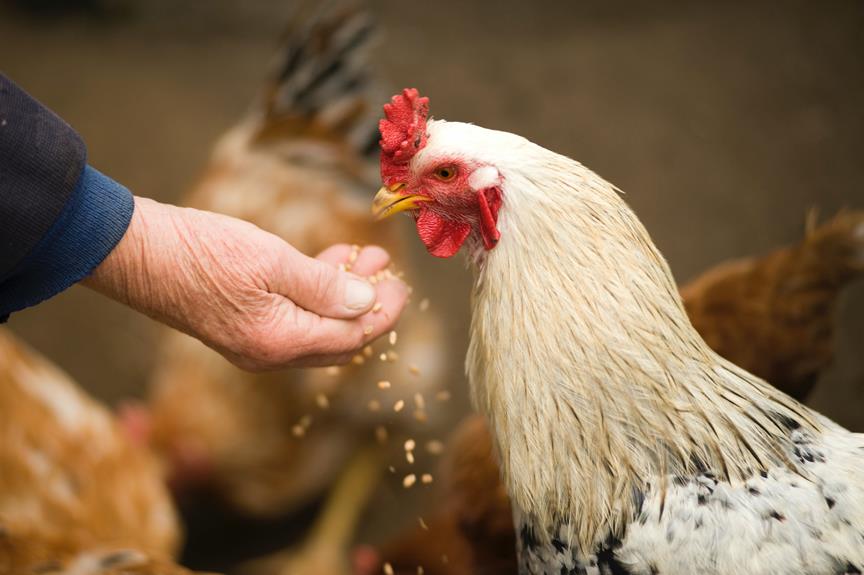When it comes to our food choices, we often overlook the impact they have on the world around us. But what if I told you that by eating organic, we can make a meaningful difference in our quest for sustainability?
By choosing organic options, we are not only nourishing our own bodies, but also supporting a system that prioritizes the health of our environment and communities. Organic farming methods, such as avoiding synthetic pesticides and fertilizers, promote healthier soil and water systems, preserve biodiversity, and reduce our carbon footprint.
Additionally, by supporting local and sustainable agriculture, we can foster a sense of belonging and connection to our food sources. So, let’s explore the advantages of eating organic for sustainability and make a positive impact together.
Reduced Environmental Impact
To achieve reduced environmental impact, we choose to eat organic.
Organic farming practices minimize chemical pollution by avoiding the use of synthetic fertilizers, pesticides, and herbicides. These chemicals can contaminate soil, water, and air, posing risks to human health and ecosystems.
By promoting ethical farming practices, organic agriculture focuses on maintaining soil health, biodiversity, and ecological balance. It emphasizes the use of natural fertilizers, crop rotation, and biological pest control methods. This not only reduces the release of harmful chemicals into the environment but also supports sustainable farming systems.
In addition, organic farming practices help conserve water resources by promoting efficient irrigation techniques and soil moisture retention.
Healthier Soil and Water Systems
By choosing to eat organic, we improve the health and quality of our soil and water systems. Organic farming methods focus on building and maintaining healthy soil, which has numerous benefits for our environment.
Compared to conventional farming, organic practices promote improved nutrient content in the soil. This is achieved through the use of compost, cover crops, and crop rotation, which replenish the soil with essential nutrients.
Additionally, organic farming avoids the use of synthetic pesticides and chemical fertilizers, reducing pesticide exposure in the soil and water systems. This is crucial for maintaining the delicate balance of ecosystems and protecting the health of aquatic life.
Preservation of Biodiversity
Supporting organic agriculture helps to preserve biodiversity, ensuring a sustainable future for generations to come. Conservation efforts and ecosystem protection are critical in maintaining the delicate balance of our planet’s diverse flora and fauna.
Here are three ways in which organic farming contributes to the preservation of biodiversity:
- Habitat preservation: Organic farming practices prioritize the protection of natural habitats, including forests, wetlands, and grasslands. By avoiding the use of synthetic pesticides and fertilizers, organic farmers create a safer environment for wildlife, allowing them to thrive and maintain their vital roles in ecosystems.
- Species diversity: Organic farms promote the growth of diverse crop varieties and the use of traditional farming methods. This approach helps to preserve heirloom plant species and encourages the growth of beneficial insects, birds, and pollinators, fostering a rich and diverse ecosystem.
- Soil health: Organic farming focuses on enhancing soil fertility through practices such as crop rotation and the use of organic matter. This improves the soil’s ability to support a wide range of organisms, including beneficial bacteria, fungi, and earthworms, which contribute to a healthy and resilient ecosystem.
Lower Carbon Footprint
When we choose to eat organic, we can significantly reduce our carbon footprint. Organic farming practices prioritize sustainability and aim to minimize carbon emissions throughout the production process. Sustainable farming methods, such as the use of organic fertilizers and the promotion of biodiversity, can help sequester carbon in the soil and reduce greenhouse gas emissions.
Additionally, organic farmers often employ techniques that reduce energy consumption, such as crop rotation and natural pest control, further contributing to lower carbon emissions. Studies have shown that organic agriculture has the potential to reduce greenhouse gas emissions by up to 30% compared to conventional farming methods.
Support for Local and Sustainable Agriculture
To further promote sustainability, we can also foster the growth of local and sustainable agriculture. Supporting local and sustainable agriculture offers several economic benefits and encourages community engagement. Here are three ways in which it contributes to a more sustainable future:
- Economic Benefits: By buying locally produced organic food, consumers can directly support local farmers and businesses. This helps to stimulate the local economy, create jobs, and reduce dependence on imported goods. Additionally, sustainable agriculture practices can lead to cost savings for farmers by minimizing the need for synthetic inputs and reducing environmental impacts.
- Community Engagement: Local and sustainable agriculture encourages community members to actively participate in food production. It promotes a sense of ownership and connection to the land, fostering a stronger sense of community. Farmers’ markets and community-supported agriculture programs provide opportunities for people to interact with farmers and learn about sustainable farming practices.
- Environmental Conservation: Local and sustainable agriculture practices prioritize soil health, biodiversity, and water conservation. By avoiding the use of synthetic pesticides and fertilizers, these practices help protect ecosystems and reduce pollution. Moreover, supporting local agriculture helps to reduce transportation emissions associated with long-distance food distribution.
Conclusion
The advantages of eating organic for sustainability are undeniable. By choosing organic foods, we can significantly reduce environmental impact, promote healthier soil and water systems, preserve biodiversity, and lower our carbon footprint.
Additionally, opting for organic supports local and sustainable agriculture, ensuring that we’re making choices that are both good for our bodies and the planet.
So let’s take a step towards a more sustainable future by embracing the benefits of organic eating.




